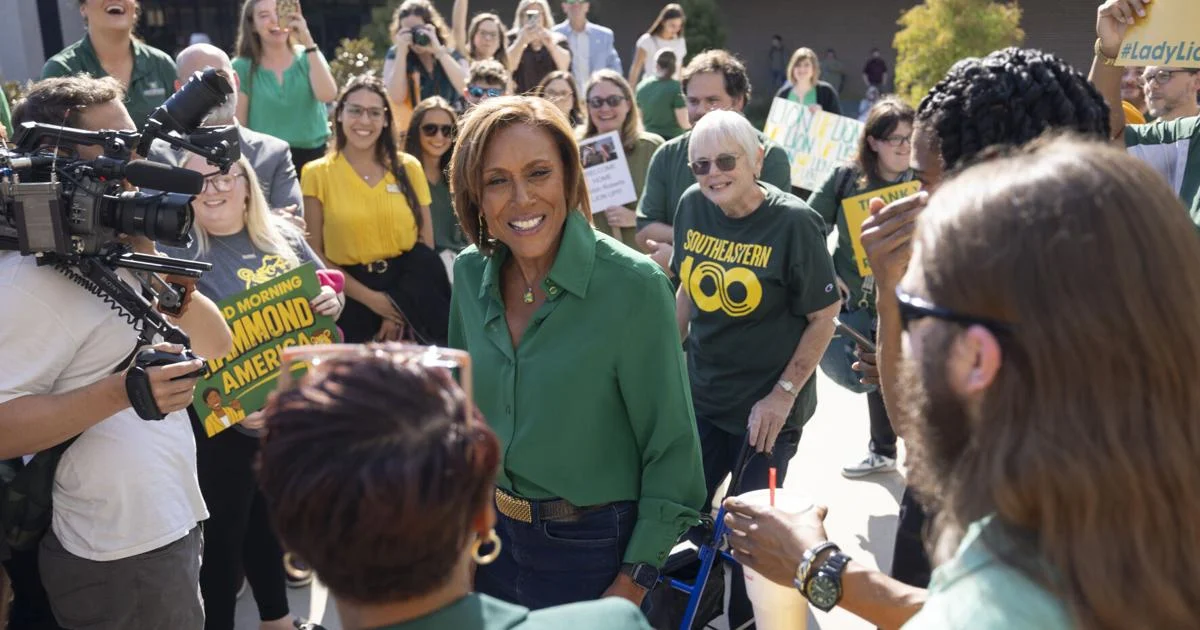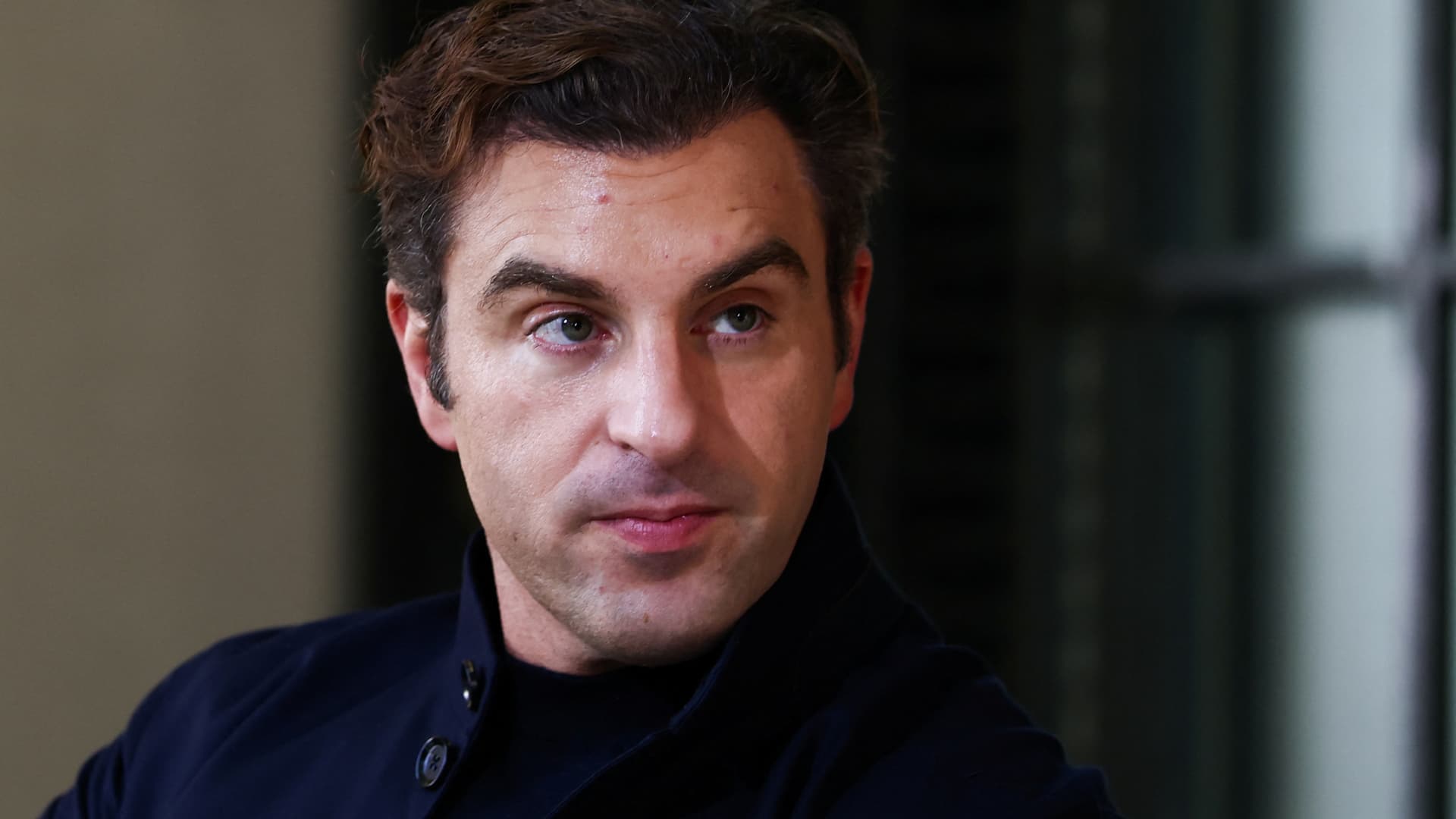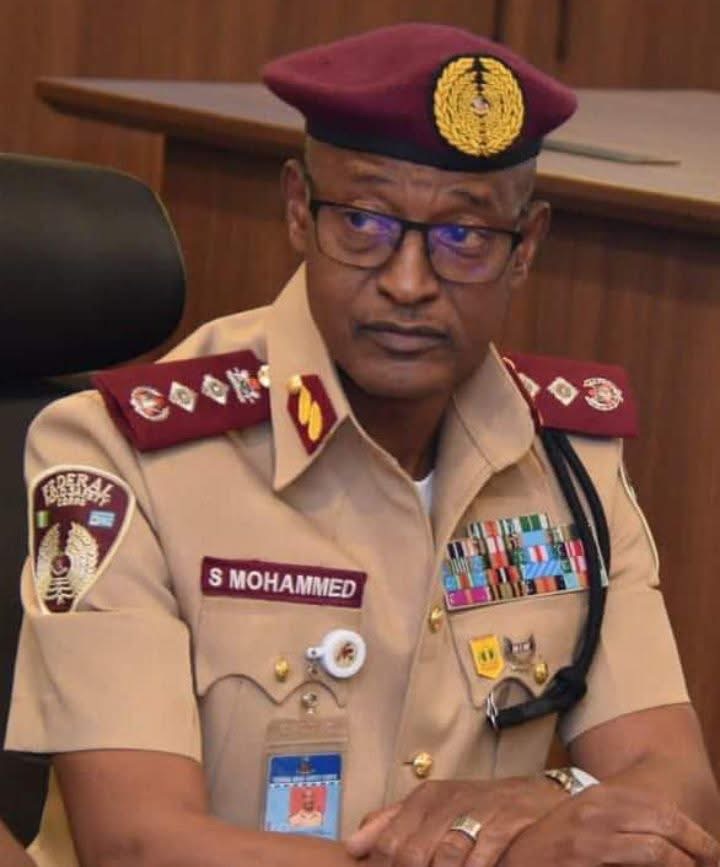Copyright Baton Rouge Advocate

Talk about your full-circle moments. Forty-two years after Robin Roberts graduated from Southeastern Louisiana University, she returned to the Hammond campus last week to cut the ribbon on a building named in her honor. The Robin Roberts Broadcast Media Center is now part of the newly renovated and expanded D Vickers Hall, known as the Humanities Building when ABC's "Good Morning America" co-anchor walked its halls in the process of earning her degree in communication. There was no such degree when Roberts started out at SLU in 1979 — that didn't come about until her senior year. And the extent of television broadcasting resources at the university at that time? A Beta camera (Betacam) and an editing deck, Roberts recalls. Those were the days, as they say. Cutting the ribbon As one of her favorite songs, "Ain't No Mountain High Enough," blared from the sound system, Roberts appeared from inside the center to cheers from the crowd gathered outside. The university's Spirit of the Southland Marching Band and the Southeastern Gospel Choir added to the festiveness of the morning celebration. Sunny and quite warm, Robin Roberts cardboard fans waved briskly throughout the audience. "What a great day for our beloved Southeastern," university President William S. Wainwright began. Wainwright described Roberts, 64, as one of the most respected and accomplished broadcasters in the industry, rising through the ranks to present spot at ABC News. She's also been named to Forbes World's 100 Most Powerful Women, and is one of Time magazine's 100 most influential people. "And due to her generosity and her love of her alma mater, we are thrilled to cut a ribbon today on the Robin Roberts Broadcast Media Center," Wainwright continued. "Through Robin's expression of love and support, future generations of broadcast journalism graduates will thrive and therefore strengthen their families, strengthen their communities, strengthen their economies, but of most importance, strengthen humanity." Roberts made a sizable donation to the project, which was also paid for through state capital outlay funds. The new center adds 33,000 square feet to the 80,000-square-foot academic building, featuring three broadcast media studios — a newsroom, a film studio and a multimedia studio. During her remarks, Roberts talked of her first broadcasting job as sports director/on-air personality at WFPR/WHMD in Hammond while a student and stand-out on the Lady Lions basketball team. "You haven't lived until you scratch a little Merle Haggard on a 100-watt radio station in Hammond, America," she said, laughing. "This building is stellar. It is beautiful. It exceeds all my expectations," Roberts said. "… I could never have imagined what is behind us right now. But what is most important, everyone who's going to walk through those doors, the teachers that are in there waiting for you (the students) to help you because you are rooted to rise." She described the legacy wall located in the center's lobby. It's a display outlining Roberts' life, from growing up in Pass Christian, Mississippi, to radio and TV jobs on her way to ESPN and eventually ABC. "And you will see on the wall, there are three quotes. One is from Sally-Ann (Roberts, her sister and retired WWL-TV co-anchor): 'Don't let fear keep you from your destiny. Don't let fear keep you from your destiny,' she said. "And mine saying, 'Dream big, but focus small.' And then the last quote on the wall from our dear mother — 'Everybody has a gift. Discover yours and share it with the world.' And I'm so grateful that I have been allowed this opportunity to share a gift with my Southeastern family." One-on-one with Roberts As she stood in the new center's state-of-the-art multimedia studio after the ribbon cutting, Roberts took the relatively unfamiliar spot on the other side of the mic fielding questions from a handful of Hammond, Baton Rouge and New Orleans media. The Advocate was given time for a few brief queries to the woman of the hour. I know you're very, very proud of this media center in your name. How much input in the specifics of building itself did you have? It was a real team effort. And because I have worked in this industry for a number of years, they did want my input. But at the end of the day, this is for the university. They know what's best for their students, what is best to get them prepared. I have to tell you, at first I was like, don't put my name on the building. And they're like, what? I'm like, no, it's not about me. And then my team was like, are you crazy? So I was appreciative, very appreciative of how much they allowed me. But the contractor, the architect, the university, they get all the praise, especially the teachers. They knew what they needed best. You've mentioned your challenges in the broadcast field when you were first starting out, but what are the challenges in TV news today? The challenges today, which, it is very disheartening. I love our profession. I'm very proud to be a journalist, as I'm sure you are. It hurts my soul that we have lost the trust of the American public and for various reasons. And of all the accolades that I have received, the one that means the most was when Reader's Digest named me Most Trusted News Person. (She tears up.) Because without trust, you don't have anything with the public. And so the challenges are, and also with local, stations, newspapers, we're being replaced in in many ways. And so it's finding a way to embrace the new technology and the new ways of getting across the information. But at the end of the day, storytelling is storytelling. No matter if it's print, no matter if it's on television, radio, what have you. And I hope that the American public would know that a free press is so vital for their well-being. A few years ago you told us that your dream interview would be Oprah, which you have since done, of course. Is there anyone else still on that dream list? The one that I wish, and he's no longer with us, is Nelson Mandela. That was the interview that I really wanted. And primarily to talk to somebody who was wrongly jailed for as long as he was. And to leave imprisonment, not wanting retaliation, but reconciliation. And I really wanted to speak to him, because I think so many times when we get angry, no matter what has happened to us, we want to lash out, and for this man to go like, no, no, no, no, not retaliation, reconciliation. There's that dreaming big.



